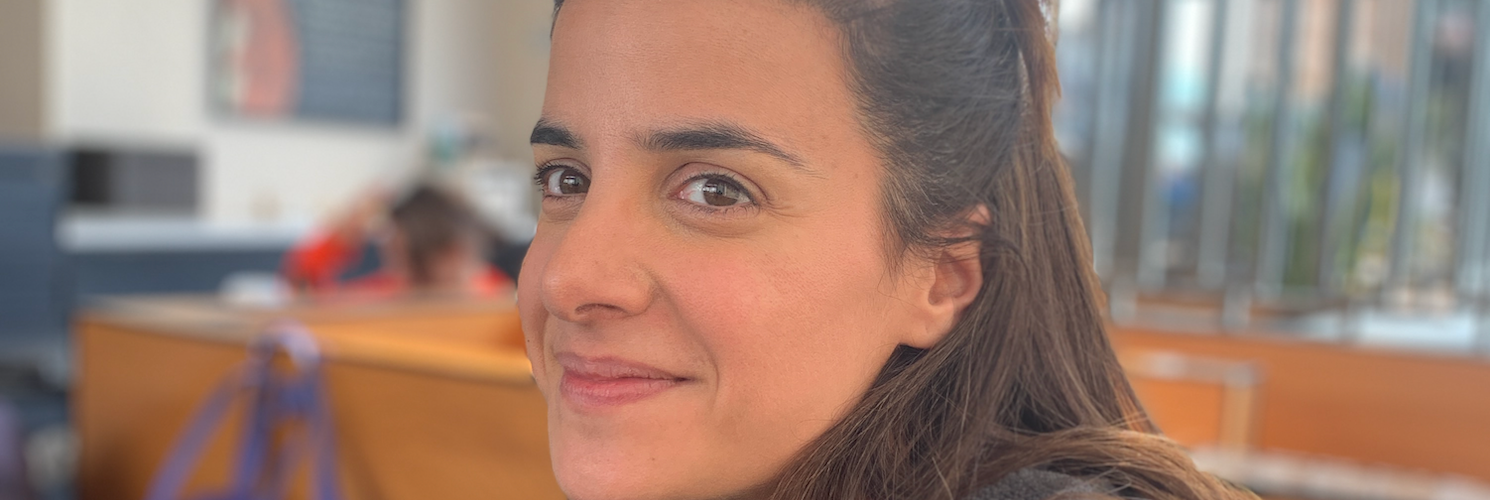All-in Corinne

Motherhood (extra strength)
Her hazel, smiling eyes glittered as soon as she mentioned her daughter. Giselle, she’s four, her only child.
“I’m almost 38. Some moments in life leave an impact, but nothing comes close to the change after becoming a mom. That’s the moment that most affected me. So, yeah. She’s my favorite topic.”
Raising a child was more difficult than Corinne imagined. Especially the way she goes about it and how involved she gets. She started working right after college. Then, she decided to become a full-time mom as soon as she got pregnant and for the first three years of her daughter’s life. She had the daycare option. She still chose the traditional approach, maximizing mom’s time with Giselle.
“To quit your job and focus solely on a baby. To be with the kid the whole time is beautiful but demanding. It’s better and harder than I imagined. I’m not sure if I can do it again. Another 3 or 4 years? It would be a lot!”
“Could you have worked half-time?” I ask. Yes, but she’s also unsure how focused she would have been on both tasks. Her daughter has filled up her life. There was no space for anyone else, she claims (with a giggle). I had to ask: “How does your husband feel about that?” They both decided that one child was it.
The Hajj family
Women’s opinion on women, work, and home
There is a judgment on women by women. A mom with a job looks at the one who stays home as lucky and privileged. A stay-home mom also sees a mother who works as fortunate. Each one sees the other as leading a more fulfilling life.
Motherhood and work accomplishments serve to validate a woman. While at work, she would disconnect and focus on her job. When home, she starts a second shift. As a 24/7 stay-home mom, you do the same tasks repeatedly with little socializing. “How do you get validated being a mom?” she asks.
“So I felt that letting go of work to be a full-time mom would be more fulfilling, and it was. I also understand women who choose to keep a good focus on their careers and those who don’t have a choice. There is no one magic formula for being a good mother.”
A woman may destroy her career by leaving her work for 3–4 years, which is the case for Corinne. Or so she thought. She believes that different moms can do it differently, and it’s okay.
The guilt trip
She was stuck on feeling guilty for leaving her if anything happened to them (mama and Papa). At the same time, she wonders how happy Giselle could be if she had siblings. A same-age cousin to Giselle creates fun and excellent dynamics for both kids.
She feels guilty because she wants to give her best. “Every parent does. Not only moms,” she says. You don’t want to show them you cannot control your temper; at the same time, you want them to know that it’s ok to have one. You don’t want to be on your phone too much, either. Anything that goes wrong in your child’s life, you can find a way to feel responsible for it. She used to feel guilty when she went out to lunch or dinner or if she wasn’t the one putting her to bed. Now that her daughter is four and she’s back to work, the dynamic is changing.
Theory-based child rearing
Corinne is impacted by the method described in The Continuum Concept. The author lived with tribes. She saw how they raised their children more naturally than our modern approach. Slow detachment happens in the tribe between a mother and her child. When a child gets enough in the early years, he or she becomes ready to walk away, explore things, and be more independent. In Liedloff’s book, the mom carries the child around to explore and play. Gradually, through a natural progression, the child detaches from the parent.
Corinne believes that this approach would give Giselle a sense of security. She did not want her daughter to want more when Mom was unavailable. She believes that it’s a healthier approach.
Giselle The Explorer
And on she goes
One day, she will have mixed feelings when Giselle becomes a teenager and starts distancing herself. Corinne feels that she will be ready to embrace it.
She is the type who goes all in. She contemplates that she should have taken time for herself, but things happened that way, and she doesn’t regret it. The professional break ended up steering her in a new direction. She’s restarting in a much better place than where she left off.
“So that’s it. I am trying to find the balance between how much I would do for my daughter without completely dismissing myself.”
They chose to leave Qatar for their baby’s sake and wanted to raise her despite the chaos in Lebanon. She wants her to be free and in a somewhat less traditional society. They lost friends in the process. The distance and not putting effort into keeping the relationships did not help.
“I forgot myself willingly. I decided to be just a mom for three years. Nothing else. Work, friends, family, everything was put aside. I was just a mom. I feel lucky that I got to do it.”
“Who is Corinne? What am I known for? Hmm, I wonder. Since 2015, and obviously from our conversation, I’m a mom. This is number 1. And now, I am a permaculturist. A Permie.”
More about Corinne’s permie life in a story coming your way, right here on Tuesdays@Starbucks.
Corinne’s favorite Starbucks drink: Tall Americano with an occasional butterscotch cookie.








